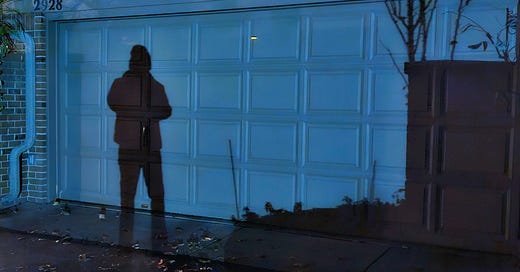The string of girlfriends I have written about here and there in these posts still makes me smile. With the exception of the child hating Southern belle, they were all good people with plenty to offer somebody—just not me. If I’d partnered up with any one of them, we would have ruined each other’s lives, and I’m sure they are each laughing and shaking their heads about me now, too. “How,” they might be asking themselves, “did I ever get myself mixed up with that aging bohemian living in a low-rent second-floor walk-up downtown? What was I thinking?”
Fair enough, but there was more to come.
The lovely Norwegian farm girl was in the future, but for now the brilliant animal rights activist and I enjoyed a renaissance of our romance.
Which, you’ll be shocked to learn, was not destined to last.
I had interrupted her first attempt to dump me by collapsing with a heart attack, a tactic that shouldn’t be overused. It might not work out as well a second time. She’d honorably seen me through my initial recovery and now did what had to be done. She dumped me, and I understood. I was grateful that she had stuck with me a little longer and I took it on the chin without complaining. But the combination of a recent life-threatening heart attack and being dumped by a romantic partner led to a fairly predictable reaction.
I became clinically depressed. It should not have surprised anyone. Both are common triggers, and I got hit with a double whammy.
Indeed I’d been treated by an acupuncturist/herbalist for depression some years back and had likely been suffering dysthymia, a low-grade chronic depression, most of my life. Now, a tangle of self-recrimination and intrusive fantasies about how to commit suicide kept me up at night. I could swallow an overdose before jumping off a bridge over the Mississippi or I could swallow an overdoes before jumping out of a tree with a noose around my neck. Waking up and getting busy should have seemed a relief from such nights, but in the morning all I really wanted to do was to pull the covers over my head and stay put. For days on end I ate everything in sight and then went days and days not eating a thing. Either way, food had no taste or texture. More intrusive thoughts than ever before in a life full of intrusive thoughts flooded my mind all day long. I bought a length of rope at the hardware store on Nicollet Ave. Concentrating on writing was mostly a joke. I couldn’t do it and couldn’t figure out why I should care. I cried at the oddest damned moments, triggered by nothing. Uncontrollably. Deep, lonely sobs. I was ashamed to leave my apartment.
Except for one thing.
I had to work. School visits had long since been scheduled. Yeah, I wanted to stay in bed, but I couldn’t. The rent had to be paid. My private health insurance premiums, which kept finding a higher roof to blow through, had to be paid. I had to get out of bed, get dressed, drive to whatever school had asked for me, and I had to do my job teaching story writing and telling those stories. So I did.
I remember clearly any number of times standing outside a classroom with tears rolling down my cheeks, dripping off my jowls, making wide wet spots on my shirt, waiting for the clock to tell me when I had to walk into that room and straighten up. The time would come and I would wipe away my tears and go red-eyed into the classroom working a smile onto my face. And there, in front of me, would be a room where twenty-five or thirty open faces looked at me wondering what new thing was about to happen.
I got them laughing and asking questions and doing their projects and it all rubbed off on me. It was medicine. The kids I taught reaffirmed what I had learned about my calling in my graduate program. They got me through that horrible time. They saved my life.
They and modern medicine.
Fortunately, I’d had a course in psychopathology while doing my graduate program and had kept my Diagnostic and Statistical Manual of Mental Disorders, 4th ed. The diagnosis was easy. I had just about everything on the list for clinical depression, and I was in luck. I had a doctor who actually listened to his patients. I recited the list of symptoms and said, “I need an antidepressant. I’m clinically depressed.” He wrote me a prescription then and there. Fritz Arneson, a wonderful doctor, a wonderful man. I worked with doctors every day for four years as an Air Force medic, and Dr. Arneson ranks at the top.
In addition to taking spiritual strength from teaching and help from the antidepressants, I found a book called Listening to Prozac. The gist of the book is the recommendation that patients use the medication to learn how it feels not to be depressed while doing a series of cognitive-behavioral therapy sessions to learn the tools to handle warning signs of oncoming mood swings. It doesn’t work for everyone, but it did for me.
I’ve dipped low a couple of times since then, but thanks to what I learned during that time, I’ve managed to put it back together and go on. That was all twenty-five years ago. Some of my best years came after that.
In fact, I’m going to jump ahead and tell you something really happy next.



